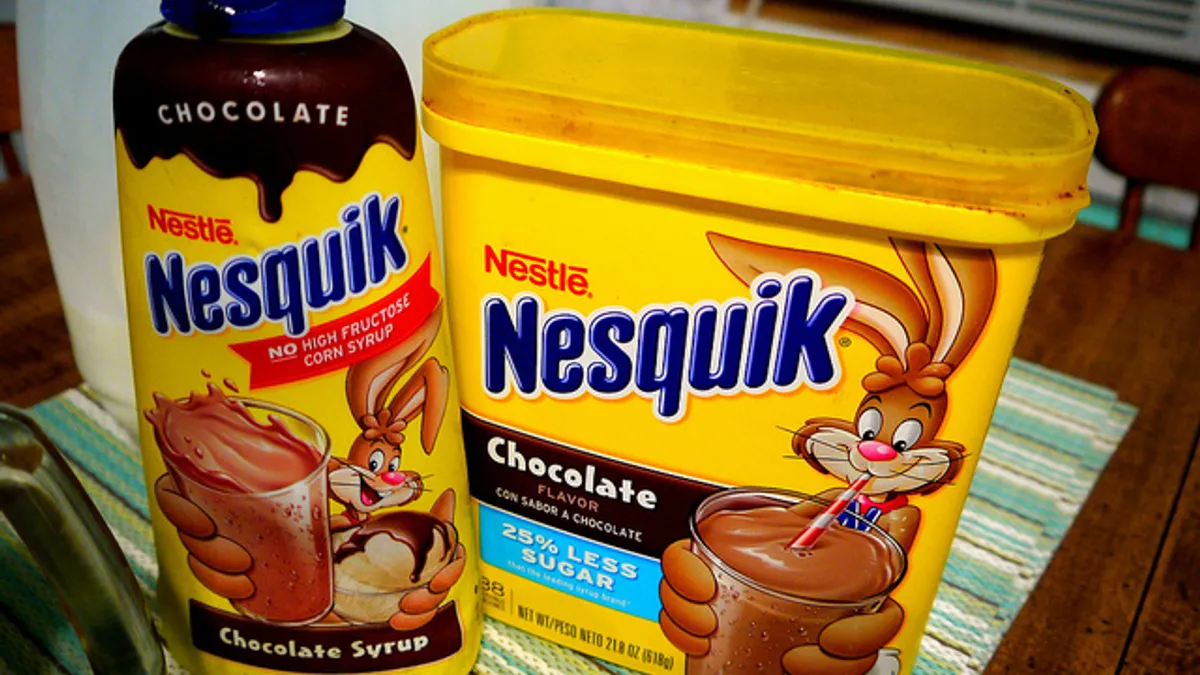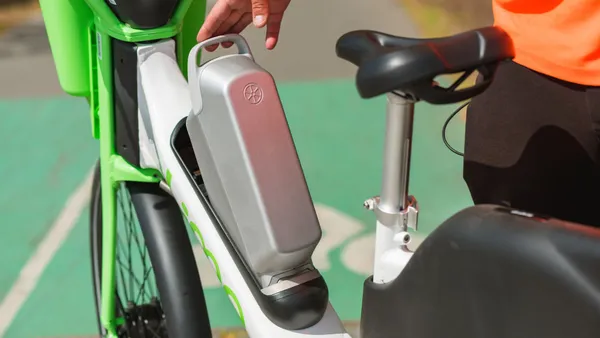Dive Brief:
- Nestlé has announced new plans to make 100% of its packaging recyclable or reusable by 2025 — a goal first set in 2018. "While we are committed to pursuing recycling options where feasible, we know that 100% recyclability is not enough to successfully tackle the plastics waste crisis," said CEO Mark Schneider in a press release.
- Starting next month, Nestlé will begin phasing out plastic straws from its products and replacing them with alternative materials, such as paper. The company will also move to paper packaging for a variety of products, including Nesquik, starting in the first quarter of this year.
- Nestlé Waters will increase its use of recycled PET content in water bottles to 35% globally and 50% domestically by 2025. Through its own engineering team, along with outside partners such as PureCycle Technologies, Nestlé will also begin exploring new paper-based solutions, biodegradable/compostable plastic polymers that are also recyclable, marine-biodegradable and recyclable plastic bottles, and food-grade recycled polypropylene.
Dive Insight:
Nestlé is among the scores of companies and industry groups trying to find new ways to make product packaging more environmentally friendly and eliminate plastic waste in the environment, especially water sources. Just this week, dozens of the largest plastic chemical manufacturers formed the Alliance to End Plastic Waste, committing $1 billion toward combating plastic pollution. Last fall, Mondelez International — which makes brands including Oreo, Tang and Ritz — also pledged to make all of its packaging recyclable by 2025.
In addition to upping its packaging recyclability and phasing in alternative materials, Nestlé also aims to change recycling behavior among both its own employees and consumers. The company is encouraging its global employees to participate in World Ocean Day on June 8, and its board members and executives will also volunteer to clean the shores of Lake Geneva this spring. The company has also pledged to ensure proper recycling options are available at all 4,200 facilities worldwide and is investing in marine plastic issues in Indonesia.
"Collective action is vital, which is why we are also engaging consumers, business partners and all of our Nestlé colleagues to play their part," said Schneider.
Some environmental advocacy groups, such as Greenpeace, believe Nestlé's actions — while a step in the right direction — don't go far enough.
“It’s good that Nestlé is finally acknowledging the severity of the plastic pollution crisis by eliminating non-recyclable products and admitting that recycling is not enough, but the solution isn’t to simply shift to another throwaway material," Greenpeace Global Plastics Project Leader Graham Forbes said in a statement. "We need Nestlé to innovate away from the single use-model entirely ... the company needs to scale up its efforts toward reusable systems rather than grasping at a quick fix that could cause further environmental disaster such as deforestation.”














